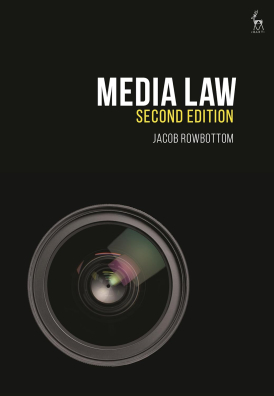Zaradené v kategóriách: ZAHRANIČNÍ LITERATURA
Media Law
Rowbottom Jacob
Formát
244x169
ISBN
978-1-5099-7035-3
EAN
9781509970353
The processes of convergence and digitalization have altered the technological conditions in which the press operates. More than that, they have altered the environment in which the press stakes its claim to freedom and strives to protect its turf from other media players. The advent of internet-based services and applications has blurred the technological boundaries between the press, broadcasting, and telecommunications, challenging their regulatory silos.
Press Freedom and Regulation in a Digital Era: A Comparative Study assesses the extent to which the emergent regulatory model for online news media is shaped by analogies from the past, or rather by a newly prevalent culture of control. By interweaving two distinct strands of analysis - the concepts of press freedom and regulation, and the phenomena of convergence and digitalization - this book examines the key implications of digitalization and assesses the challenges for press freedom in the nascent digital news ecosystem.
Drawing upon decisions of the European Court of Human Rights (ECtHR), the Court of Justice of the European Union (CJEU), as well as from cases in Germany, the United Kingdom and the United States, this comparative work comprehensively explores the regulation of the press in the digital era and the impact of the proliferating media laws, policies, and jurisprudence on press freedom. Irini Katsirea identifies the regulatory ruptures that persist and makes concrete and timely recommendations for the evolving online news ecosystem.
Ostatní s tímto titulem kupují:
-
Položka byla přidána do košíku.
















